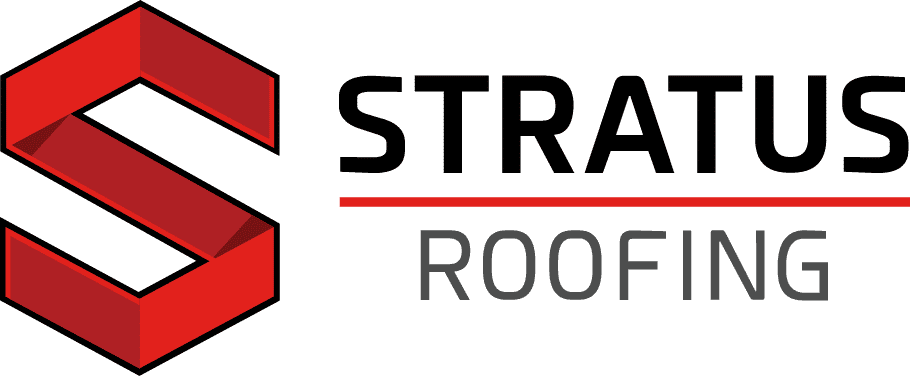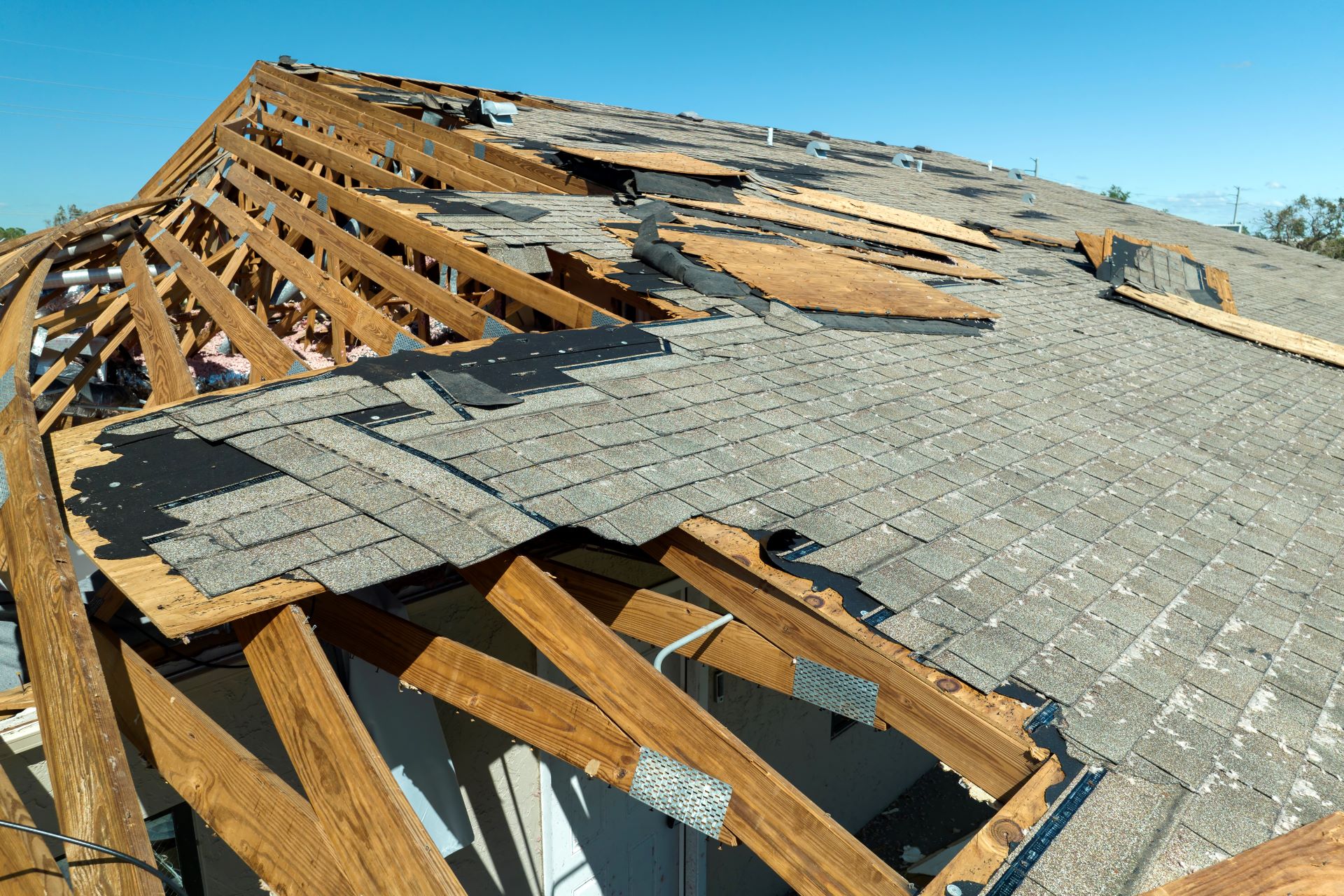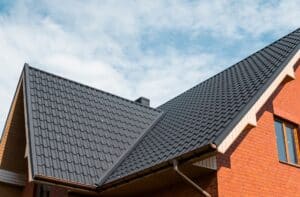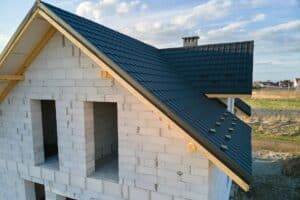Florida is notorious for its hurricane-prone environment and severe weather conditions, making it critically important for homeowners to be proactive in addressing and repairing storm damage to their roofs. Damaged roofing systems can lead to leaks, water intrusion, and even structural problems, which can significantly impact your home’s overall integrity, safety, and value.
In this guide, we will provide practical advice for Florida homeowners on assessing and repairing storm damage to their roofs. This comprehensive resource empowers Florida homeowners to properly address and mitigate the effects of storm damage to their homes by covering topics such as identifying signs of damage, documenting the impact, working with insurance companies, and partnering with an experienced roofing contractor like Stratus Roofing.
1. Identifying Signs of Storm Damage: What to Look For
After a severe weather event, it’s essential to inspect your roof for signs of damage to prevent potential problems before they escalate. Knowing what to look for can help you protect your home and address issues promptly.
– Shingle Roof Damage
Examine your shingle roofing system for missing, cracked, or curling shingles, as these are common signs of storm damage. Additionally, check for loosened or displaced granules, which can indicate further damage or wear.
– Tile Roof Damage
Tile roofs are especially susceptible to storm damage, which can manifest in the form of chipped, cracked, or missing tiles. Keep an eye out for noticeable gaps or irregularities in tile alignment, as this can be an indication of underlying damage.
– Metal Roof Damage
Although metal roofs are generally more resilient to storm damage, dents, scratches, and loosened fasteners can occur during extreme weather events. Look for any signs of rust, corrosion, or compromised seams, as these issues can lead to leaks and water intrusion.
– Flat Roof Damage
Flat roofs may experience storm damage in the form of punctures, pooling water, or membrane separation. Examine your flat roofing system for any signs of deterioration, lifting seams, or other unusual conditions that could impact its performance.
2. Documenting Storm Damage: The Importance of Thorough Records
Once you have identified evident signs of storm damage, it’s crucial to document the affected areas accurately. Thorough documentation can help facilitate insurance claims and provide a detailed record for roofing contractors to reference when conducting repairs.
– Take Clear Photos
Capture high-quality photos of the damaged areas of your roof from multiple angles. Ensure your photos are well-lit and clearly showcase the extent of the damage. These images can be particularly valuable when communicating with your insurance provider and roofing contractor.
– Record Detailed Information
Note any relevant details regarding the storm event and roof damage, including the date, time, and severity of the storm. Record any observed effects of the damage, such as leaks or water infiltration, structural issues, or safety hazards.
– Maintain a Comprehensive File
Compile your photos and detailed information into a comprehensive file that can be shared with your insurance company and roofing contractor. This organized record-keeping approach ensures that your claim can be processed more efficiently and the necessary repairs can be conducted effectively.
3. Working with Your Insurance Company: Navigating the Claim Process
A significant aspect of addressing storm damage to your roof is working with your insurance provider to file a claim and coordinate vital repairs. To ensure a smooth and successful process, it’s essential to familiarize yourself with your coverage details and the necessary steps required to file a claim.
– Review Your Policy
Before filing a claim, review your insurance policy to clearly understand your coverage. Determine if your policy includes provisions for roof damage caused by storms and whether the extent of the damage is covered under your plan.
– Contact Your Provider
Reach out to your insurance company to report the damage and initiate the claim process. Be prepared to provide your documentation, including pictures and detailed information regarding the storm event and the extent of the damage.
– Schedule an Inspection
In many cases, your insurance company will dispatch an adjuster to inspect the roof and assess the damage. Arrange for this inspection to take place as soon as possible to expedite the claim process and accelerate repairs.
4. Partnering with a Reliable Roofing Contractor: The Key to Effective Repairs
Selecting a trustworthy and experienced roofing contractor is crucial in ensuring proper, long-lasting roof repairs. A reputable professional will work closely with you and your insurance provider to restore your roofing system to optimal condition.
– Vet Your Contractor
Conduct thorough research when selecting a roofing contractor. Confirm their credentials, licensing, insurance, and reputation before committing to a partnership. Inquire about their experience in dealing with storm-damaged roofs and their familiarity with the insurance claim process.
– Obtain Quotes and Timelines
Get multiple quotes from potential contractors and discuss their proposed timelines for repairing the storm damage. You want to ensure you are working with a contractor who can provide a fair price and a reasonable timeframe for completing the work.
– Discuss Repair Options
Talk with your chosen contractor about the available repair options, and consider factors such as costs, material quality, and installation methods. A knowledgeable contractor will be able to suggest the most efficient and durable solutions for addressing storm damage to your roof.
Protect Your Florida Home from Storm Damage with Expert Support
Assessing and repairing storm damage to your roof is a critical aspect of maintaining the integrity, safety, and value of your Florida home. Armed with the knowledge and resources provided in this guide, and with the support of a skilled and trusted roofing contractor, you can effectively safeguard your home from the impacts of severe weather.
Ensure your Florida home remains protected and resilient against storm damage with the help of Stratus Roofing’s experienced team. Contact our roofing company in Orlando, Florida, today for expert guidance and support in addressing your roofing needs. Experience superior service and peace of mind.







